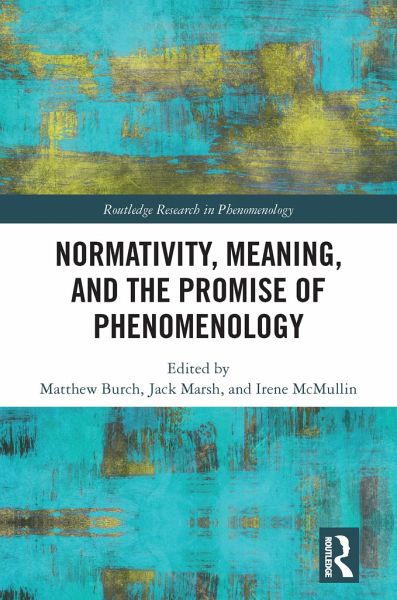
Normativity, Meaning, and the Promise of Phenomenology
Versandkostenfrei!
Versandfertig in 1-2 Wochen
56,99 €
inkl. MwSt.
Weitere Ausgaben:

PAYBACK Punkte
28 °P sammeln!
The aim of this volume is to assess the philosophical importance of phenomenology as a method for studying the normativity of meaning and its transcendental conditions.














